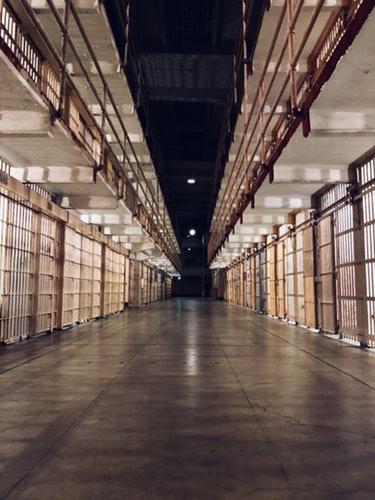Not Only Is There an Eco-Friendly Prison but It's Winning Awards?
- April 2 2019
- 3 min read
Not Only Is There an Eco-Friendly Prison but It's Winning Awards?

What do you think of when someone mentions prison? Probably a concrete building surrounded by barbed wire, chain link fences, with flood lights and extensive alarm systems.
Surprise! That's not the case with this prison in Sweden, which recently won an award for being environmentally friendly.
Tabellen 4, a building in Sollentuna High-Security Remand Prison, won the 2019 BREEAM Public Projects In-Use award for its eco-friendly initiatives. these include a 1,100 square meter (11,840 square feet) green roof made of plants and the necessary turf, a ventilation system that recycles heat straight from the air, and a waste disposal room with storage for eight different types of waste.
Get rid of a very large waste problem by purchasing a reusable water bottle.
The building is wrapped in 6,000 square meters (about 1.5 acres) of insulating glass. This both regulates the temperature and has built-in alarms.
"The judges were impressed by the way they had tackled sustainability issues through the physicality of the building, regardless of security issues."
BREEAM Judging Panel Chair Alan Yates
Bought by Swedish company Vasce in 2010, the building was adapted by working alongside the Swedish Prison and Probation service. The vegetation and turf "...protects the roof from solar radiation, rainfall, and temperature changes," as well as helping "facilitate the runoff of surface water onto the property, while also enabling pollination...for insects," said Sara Jägermo. She is Vasce's head of property. This is "...of most importance since the bee population is declining."
Other features include low-flush wet rooms, bathrooms designed so every surface can get wet, that reduce water consumption; more energy-efficient fridges; and LED lighting that can be switched on and off from a central surveillance center.
The building is heated and cooled using a mechanical ventilation system. According to Vasce, this system, which recycles the energy in the air, has reduced the energy needed for heating by 50-60 percent.
They also convert all food waste into biogas. Twelve percent of offerings are organic, and at least two meals a week are vegetarian. This is according to Patrik Snellman, former assistant governor of Sollentuna.
make sure whatever you shop for is stored in an eco-friendly way by using reusable bags.
There is also an underground corridor that connects the prison, prosecutor's office, and court house. This is so "prisoners can be transported safely without cars," says Snellman.
Tabellen 4's improvements are part of a wider effort from the Kriminalvarden, the Swedish prison service, to increase the wellbeing of those interacting with prisons.
"Employees, detainees, relatives, and other visitors have presumed higher stress levels in an institutional environment like this. Research clearly shows that people are more contented in verdant settings, have better concentration, and demonstrate more empathy, which, in turn, leads to better results, improved concentration, and less sick leave."
Vasce Head of Property Sara Jägermo
BREEAM is an environmental assessment method. It's operated by UK-based Building Research Establishment (BRE). The awards recognize the "most innovatively sustainable BREEAM rated buildings of the previous 12 months."
According to BRE, Tabellen 4 highlights the diversity of building types, focusing on environmental improvement.
Focus on environmental improvement by purchasing Custom Earth Promos' eco-friendly products.
Sollentuna is not the first of its type. Bostoy Prison, in Norway, uses solar panels, produces its own food, and recycles as much as it can. Coyote Ridge Corrections Center, in Washington State, built solar panels covering 16,929 square feet (about 1,573 square meters); this reportedly saved $370,000 in energy costs per year. Cedar Creek Corrections Center, also in Washington State, makes honey from the prison's own hives.
Chairman Yates says that lessons learned from Tabellen 4 extend further than other prisons.
"Just because you've got limitations, don't dismiss the opportunities that exist. Yes, it will limit what you can do, but that's not a bad thing. it doesn't mean that you can't tackle sustainability as an issue. You really ought to."
BREEAM Judging Panel Chair Alan Yates
Gain access to Orders, Tracking, Custom Options and Much More!